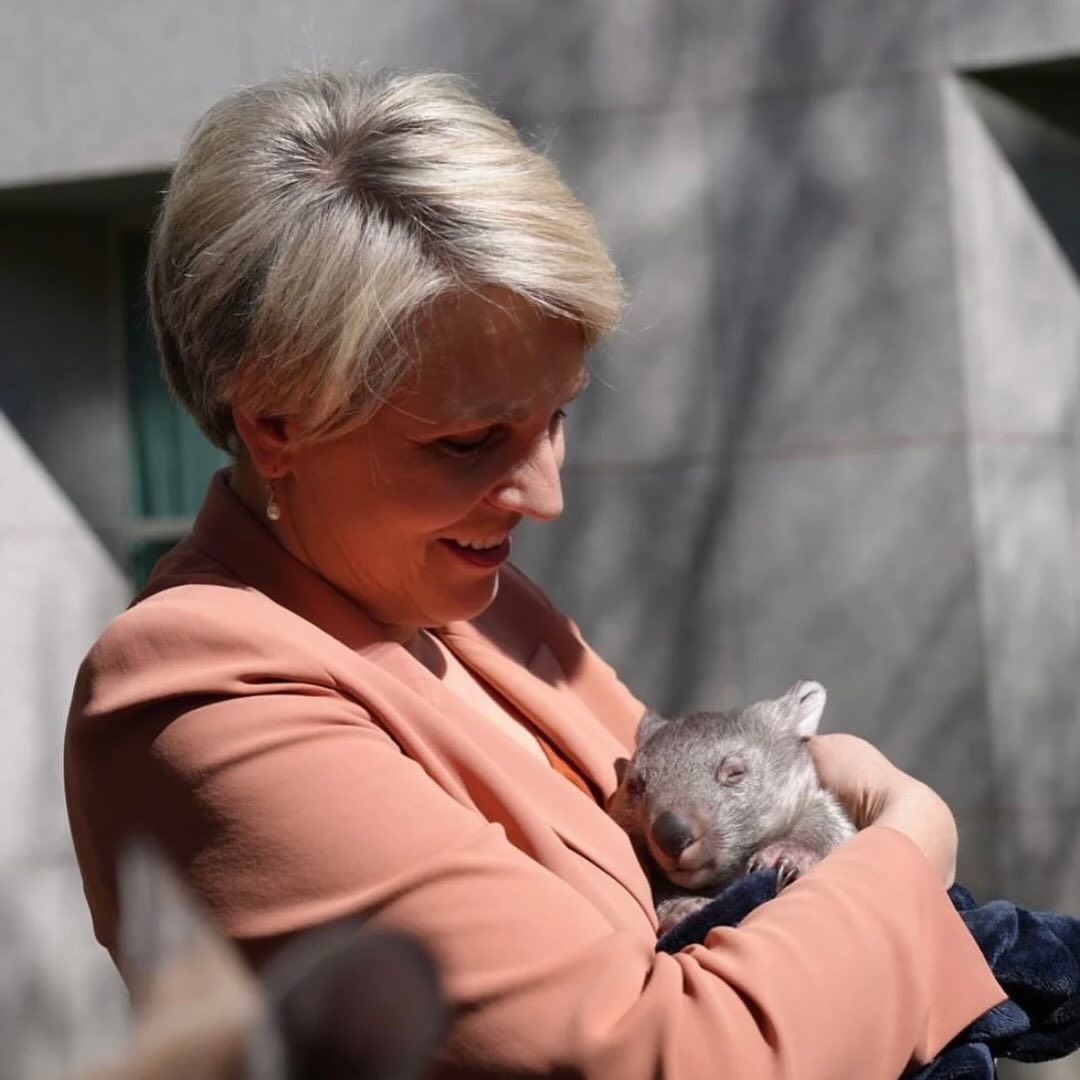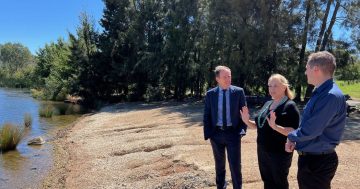
Tanya Plibersek: “The Nature Positive Matters will help business understand and measure their impacts and their dependence on nature.” Photo: Tanya Plibersek Instagram
Bega Group, Qantas and Wesfarmers are part of a 20-strong group of Australian businesses that will join a new government initiative aimed at bringing environmental impacts to the forefront of their economic activities.
Known as Nature Positive Matters, it is a network of leaders who the Federal Government says recognise the growing international importance and economic value of looking after nature.
Launched to coincide with this week’s Global Nature Positive Summit being held in Sydney, the network hopes to lead the way in linking environmental responsibility with the bottom line.
However, both the network and the summit have already been criticised for their lack of detail and what some describe as an “elitist” approach.
Nature Positive Matters is meant to provide businesses with the confidence to take action on nature and to embark on efforts to reverse biodiversity loss.
Environment Minister Tanya Plibersek said the network’s founding members are already setting examples on nature reporting and are working to embed nature in their governance and business strategies.
“It’s fantastic to see some of Australia’s leading businesses working to look after nature and inspiring others to do the same,” the Minister said.
“Nature Positive Matters will help business understand and measure their impacts and their dependence on nature. As we know, you can’t manage it if you don’t measure it.
“I encourage more businesses to participate in Nature Positive Matters.”
According to its brief, the network will support business uptake of nature-related reporting and data collection; create pilot programs to inform policies and investment decisions that are good for nature; develop tools to help investors understand whether an economic activity is environmentally sustainable; and help other businesses to take action to protect and repair nature.
Conservative think tank the Institute of Public Affairs, however, says the new network is all part of the Federal Government signing Australia up to the international Nature Positive Plan in 2022, which it says has never been subject to domestic public debate.
Previous IPA analysis of the Nature Positive Plan, it says, revealed it to be “economically unsound” and its implementation process “marked by a total lack of governance and oversight”.
IPA research fellow Saxon Davidson said the Global Nature Positive Summit is being attended “exclusively by inner-city elites and the political class” and underscores how “secretive and undemocratic” its agenda is.
“For the next three days, the federal and New South Wales governments will discuss how the global Nature Positive agenda can be implemented, which includes a plan to lock up 30 per cent of Australia’s land and water from any development just to satisfy international green lobby groups,” Mr Davidson said.
“That green activists from around the world have been invited to attend this summit, despite the reality that the Nature Positive reforms are stuck in a stalemate in Federal Parliament, demonstrates the government is happy to subvert democratic norms to implement this destructive agenda.”
Nevertheless, leading Australian businesses are lining up to join the new Nature Positive Matters network in order to be described by the government as “knowing that what’s good for nature is also good for their customers, shareholders and bottom line”.
In 2022, many countries signed up for the Kunming-Montreal Global Biodiversity Framework, which has the goal of halting and reversing biodiversity loss and environmental damage.
Australian businesses and financial institutions have now also signed up to report on their nature risks and impacts using Taskforce on Nature-related Financial Disclosures international standards.
Australia is also putting together the data and information domestic and international businesses need to carry out their nature reporting.
“We are currently working on a natural capital accounts framework with the United States and Canada, which will tell us the value of the natural assets our economy relies on – such as forests, soils, grasslands and mangroves,” Mr Plibersek said.
Nature Finance Council Ken Henry has also praised the new initiative.
“By working together, we can better build new business and financial models and opportunities, as well as the regulatory environment to deliver benefits for business, community and nature,” he said.
Nature Positive Matters founding members are Accounting for Nature, Australian Agricultural Company; Australian Climate and Biodiversity Foundation, Australian Sustainable Finance Institute, Bank Australia, Bega Group, Blackmores, Brambles, Climateworks Centre, Forico, Healthy Land and Waters, Iberdrola, Lion Group, New Forests, North Australia Indigenous Land and Sea Management Alliance, Qantas, Rest Super; GPT Group, UN Global Compact Network Australia and Wesfarmers.

















